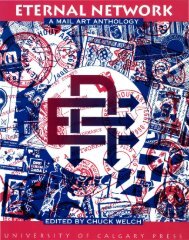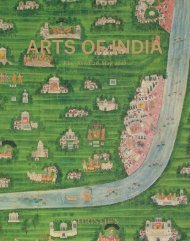1JZGauQ
1JZGauQ
1JZGauQ
Create successful ePaper yourself
Turn your PDF publications into a flip-book with our unique Google optimized e-Paper software.
1: INTRODUCTION<br />
criticism from others is an important part of the research ethics that we<br />
must abide by and something that needs to be considered through all parts<br />
of our work from planning our interviews and conducting them through to<br />
the way we publish the words of others in our work (Pripp 2011:65). This is<br />
also something that is particularly important to stress within contemporary<br />
archaeology where people often do not have the same training in ethnographic<br />
fieldwork as for example an anthropologist or ethnologist. In this<br />
thesis I have made a distinction between those who have spoken to me in an<br />
official capacity as for example museum staff or historians, who are not<br />
anonymous, and those that have spoken to me about their private life who<br />
have been given other names. The distinction is not always clear as those in<br />
an official role have also told me personal stories but the distinction is still<br />
there and their official role is important to know to understand the context<br />
or to validate the information.<br />
Archive research was carried out in the Czech Republic, Slovenia, Italy<br />
and the UK. These were not meant to be full archive studies but rather a<br />
way to get an idea of what kind of material is available about these sites.<br />
Anything more would have been too much of an undertaking within this<br />
project. Although language was sometimes a problem, these archive<br />
studies did help in providing background knowledge. Of particular use<br />
were maps and photos as these helped to provide an understanding of the<br />
kinds of physical material that had existed along the Iron Curtain and<br />
how the borders’ different areas had looked in the past. Photos, often of a<br />
more personal nature, were also found on an online forum for former<br />
Czechoslovakian soldiers. Through this forum I also managed to get in<br />
contact with three former border guards who could tell me about their<br />
time as soldiers along the borders. Conversations between the soldiers<br />
themselves on the online forum were all written in Czech and therefore<br />
could only be understood in small parts (Army Forum Website).<br />
Outside Germany there is little literature written about the former Iron<br />
Curtain or the guards who once protected the militarised borders. Instead<br />
literature was mostly used to provide historical background to the larger<br />
political events. In Germany, however, the situation is different and I was<br />
able to gain a good understanding of both the general history as well as the<br />
physicality of the Inner German Border and, in particular, the Berlin Wall<br />
through literature (Huyssen 1997, Faversham and Schmidt 1999 and 2007,<br />
Dolff-Bonekämper 2002, Klausmeier and Schmidt 2004, Harrison 2005,<br />
Schmidt and von Preuschen 2005, Taylor 2006, Sheffer 2007 and 2008,<br />
Rottman 2008, Klausmeier 2009, Hamberg 2009).<br />
25




